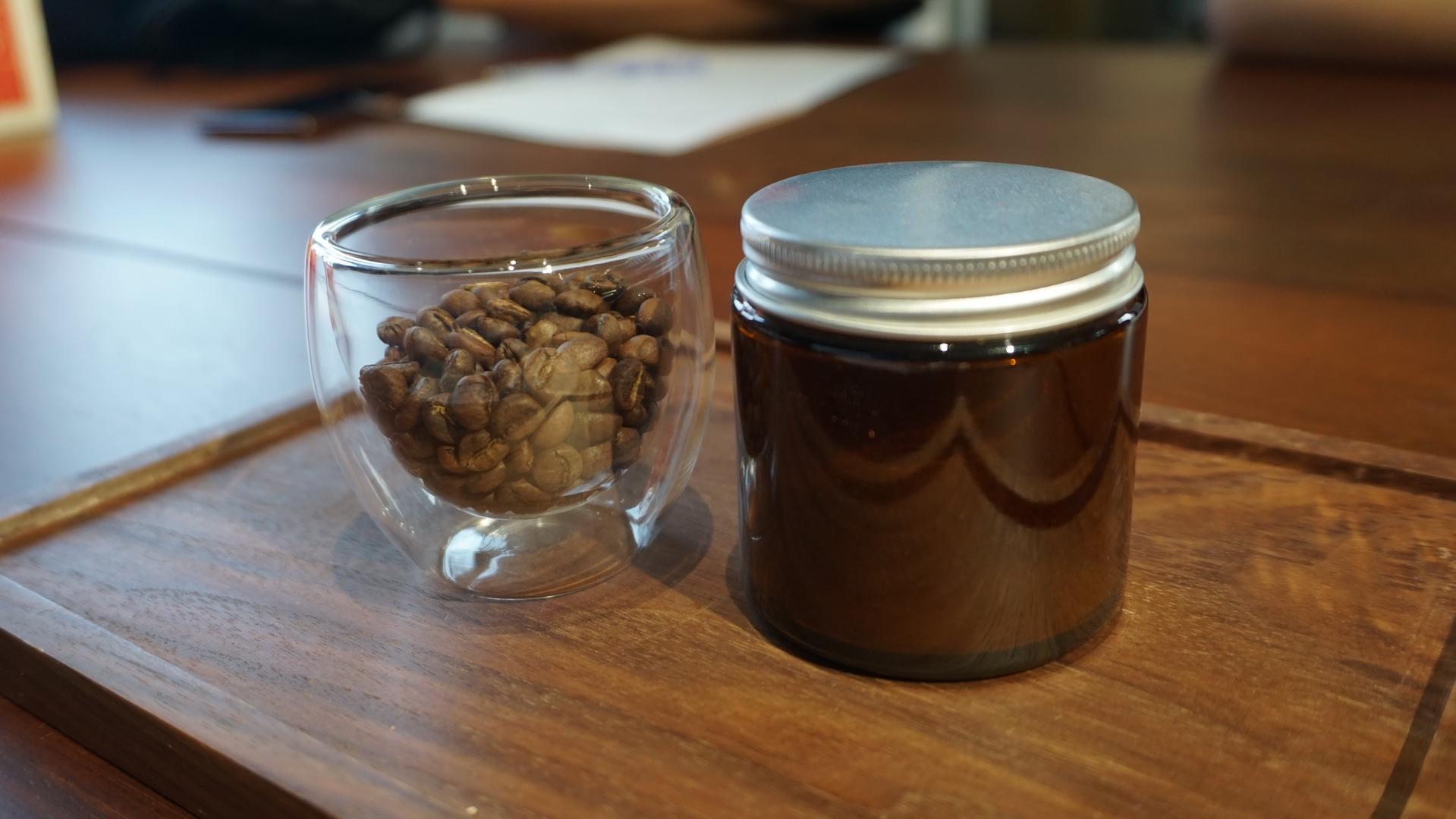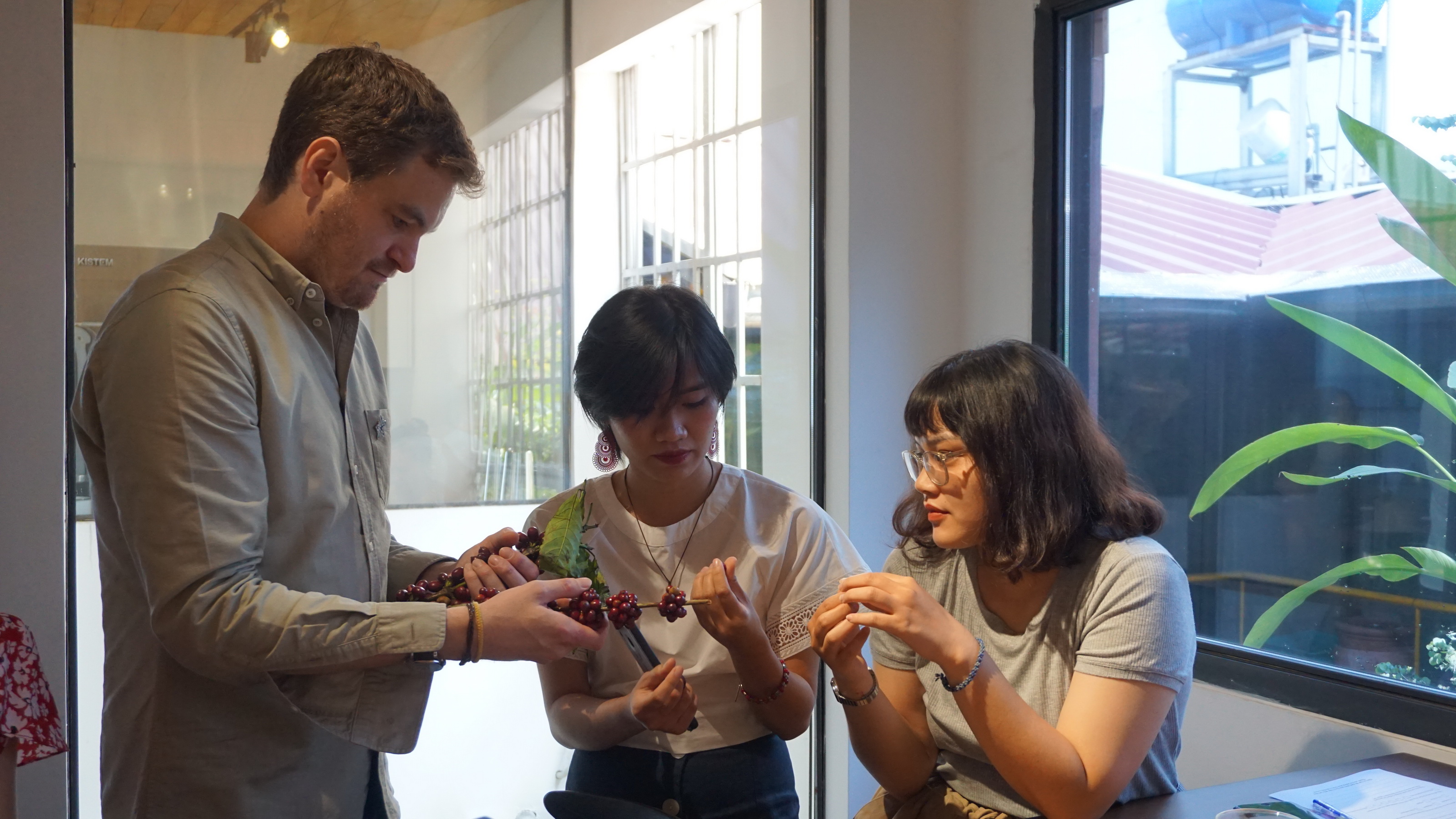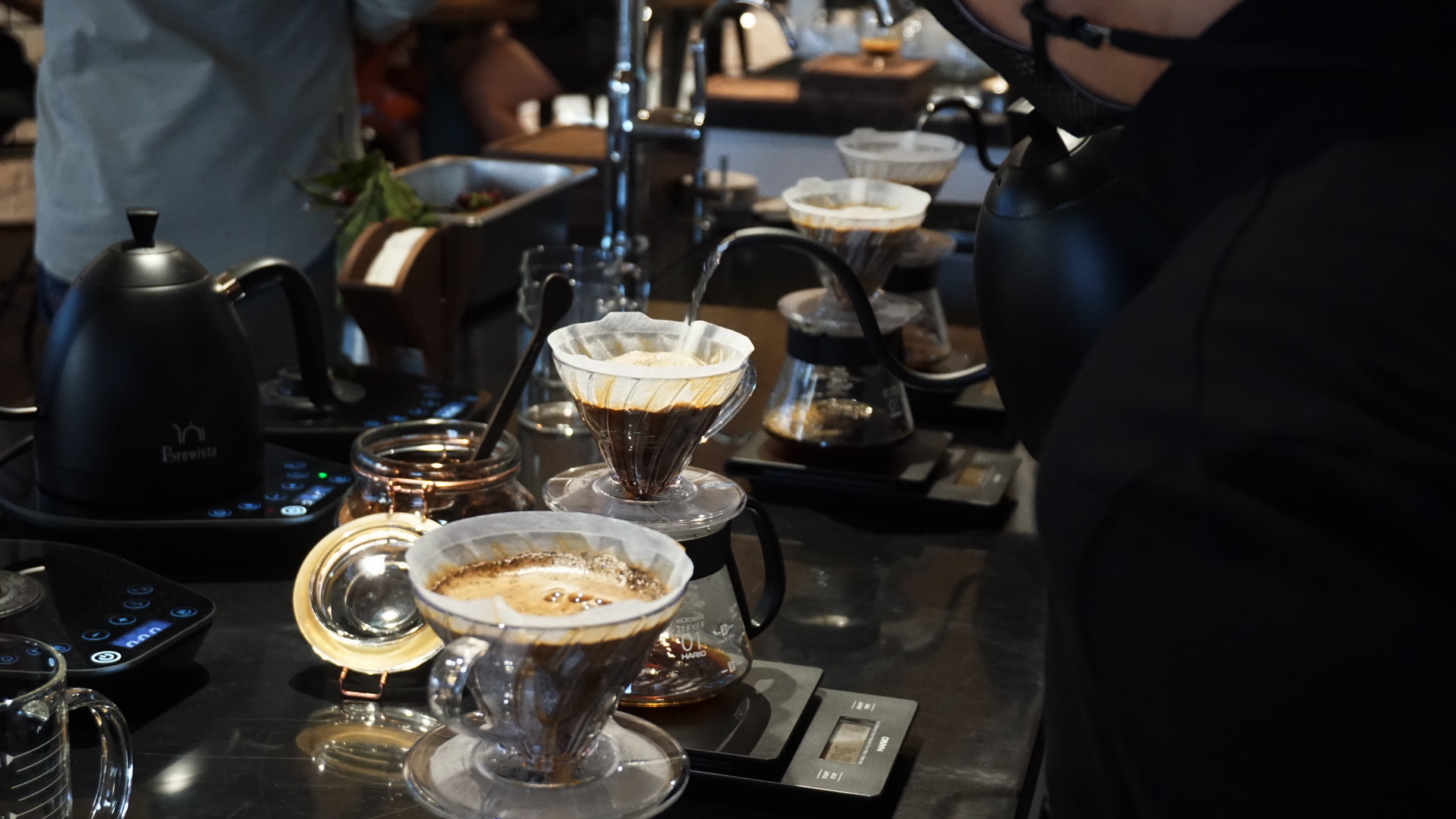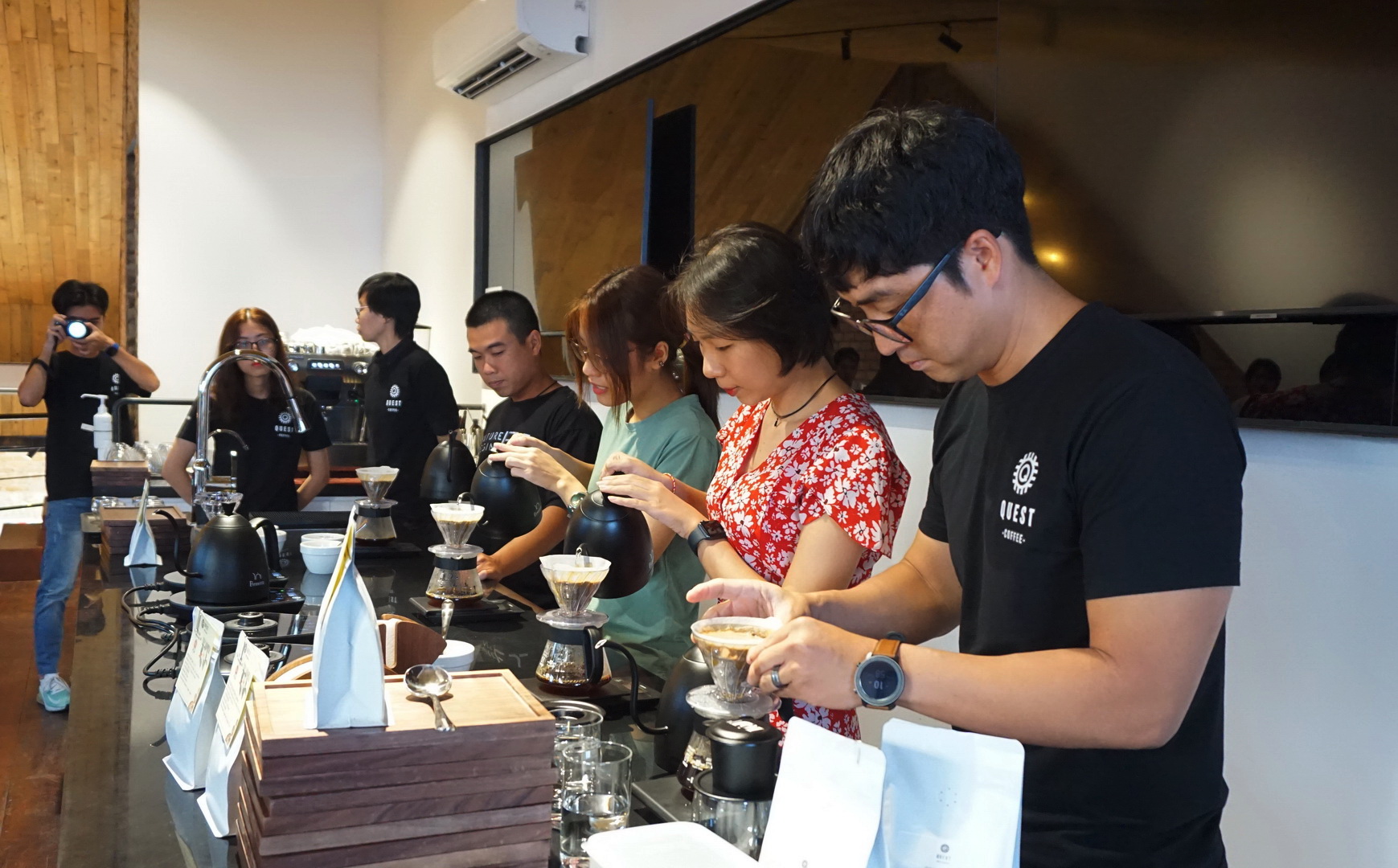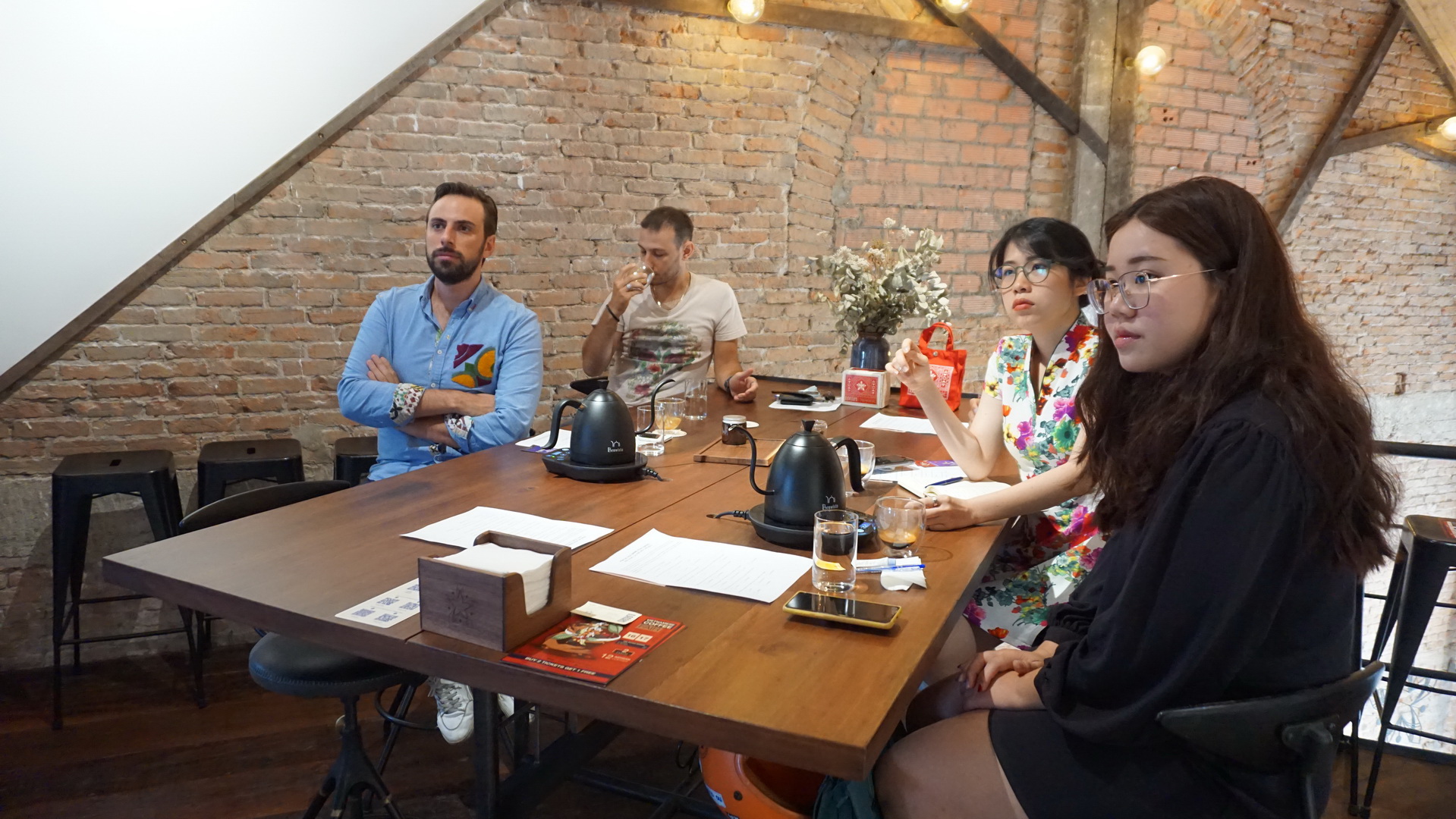It was a rare chilly morning in Ho Chi Minh City when a group of Vietnamese and expat coffee afficionados sat down for a sip of hot espresso at a downtown coffee bar in the middle of January.
Their drinks, described as “a fine robusta grown at around 850m then honey-processed to a creamy texture with nutty walnuts, almond flavors, and a smooth mouthfeel,” were just one of dozens of options at the Vietnamese Coffee Fair: Tet Edition hosted by Lacàph, a Ho Chi Minh City-based café brand.
The event hosted nearly a dozen local roasters and several presentations on a variety of coffee-related topics.
“This is the second time we’ve organized something like this," Lacàph manager Timen R.T. Swijtink told Tuoi Tre News at the event.
"The goal is to make consumers aware of the great product available here.”
At the fair’s opening tasting session, Lacàph put a spotlight on the improvements Vietnamese growers have made to locally-grown robusta in recent years, as well as the introduction of the 'dwarf beans' – a ‘mini’ coffee bean used for the espresso served to the event-goers.
“The principle is that the smaller bean, the more nutrition concentration and the better flavor," Swijtink explained.
|
|
| Timen R.T. Swijtink shows participants the difference between regular coffee beans and dwarf beans -- the smaller beans used for the espresso Lacàph served at the Vietnamese Coffee Fair: Tet Edition in Ho Chi Minh City in January 2021. Photo: Linh To / Tuoi Tre News |
According to Swijtink, approximately 95 percent of coffee output in Vietnam is robusta, with the vast majority being industrial- and commercial-grades.
“A decade ago or so, most farmers were growing for volume, not for value and quality,” he explained.
“Robusta is easy to grow in large quantities, and big multinational robusta buyers usually did not care about quality because they use the beans for instant coffee and things like that.”
|
|
| Coffee is in the making at the Vietnamese Coffee Fair: Tet Edition in Ho Chi Minh City in January 2021. Photo: Linh To / Tuoi Tre News |
The last decade, however, has seen a shift from a volume-focused approach to coffee farming to a quality-focused strategy as farmers become more convinced that they can turn a profit on high-quality products.
“One farm we’re working with in the Central Highlands city of Buon Ma Thuot is creating such a high-quality product that they’re able to ask from companies like ours more for buying the beans,” Swijtink said.
“Hence, we can create a high-quality product for consumers to enjoy, and really change people’s perception a little bit about the possibilities with robusta, that in fact, you can make wonderful coffee with robusta.
“There's really great quality product being grown at the moment by farmers across Vietnam."
The Vietnamese Coffee Fair: Tet Edition also offered a platform to 10 other local roasters, including Quest Coffee, whose selection of beans was chosen from winners of the 2020 Amazing Cup nationwide specialty coffee competition, as well as Bo Lac – Craft Coffee Roasters who used the event to introduce their Red Honey Arabica from Lang Biang Mountain in the Central Highlands province of Lam Dong.
|
|
| Baristas from Quest Coffee instruct a participant (second right) to make coffee at the Vietnamese Coffee Fair: Tet Edition in Ho Chi Minh City in January 2021. Photo: Linh To / Tuoi Tre News |
Event-goer Fabio Fasolo, an Italian expat who recently launched a coffee shop in Ho Chi Minh City, felt the fair was a great way to learn more about the local coffee scene.
For the past year, Fasolo has been touring the country to learn about coffee processing in Vietnam.
“We decided to come to Vietnam because we think that Vietnam is the cradle of coffee beans in Asia,” said Fasolo, who has been in Asia for 10 years, previously working in food and beverage business in Taiwan prior to moving to the Southeast Asian country.
Acknowledging that the majority of coffee production in Vietnam is still for commercial use, Fasolo echoed Swijtink’s claim that “the trend is changing.”
“We were very surprised when we went to coffee farms in the Central Highlands city of Da Lat and found an amazing process, and I'm very positive [about the production of this specialty]," he added.
“Also, the demand is increasing.
"In Ho Chi Minh City, you can now see so many different specialty coffee shops.”
|
|
| Participants listen to stories about Vietnamese robusta at the Vietnamese Coffee Fair: Tet Edition in Ho Chi Minh City in January 2021. Photo: Linh To / Tuoi Tre News |
Fasolo’s brand – Mulo Coffee – offers a 'Fine Robusta' which is described as “cultivated by farmers in traditional methods at the highest attitude for this variety with honey processing for a unique fruity undertone,” he said.
“Arabica’s reputation is still being built here but Vietnam is a country of robusta and the best production of robusta is in Vietnam.
“I completely agree that robusta can be a great coffee and disagree with people who say otherwise.
“If you go to the best Italian coffee shops, no one will serve you espresso made from 100 percent of arabica.
"So, the development of good robusta is needed not only for Vietnam, but worldwide."
Like us on Facebook or follow us on Twitter to get the latest news about Vietnam!



